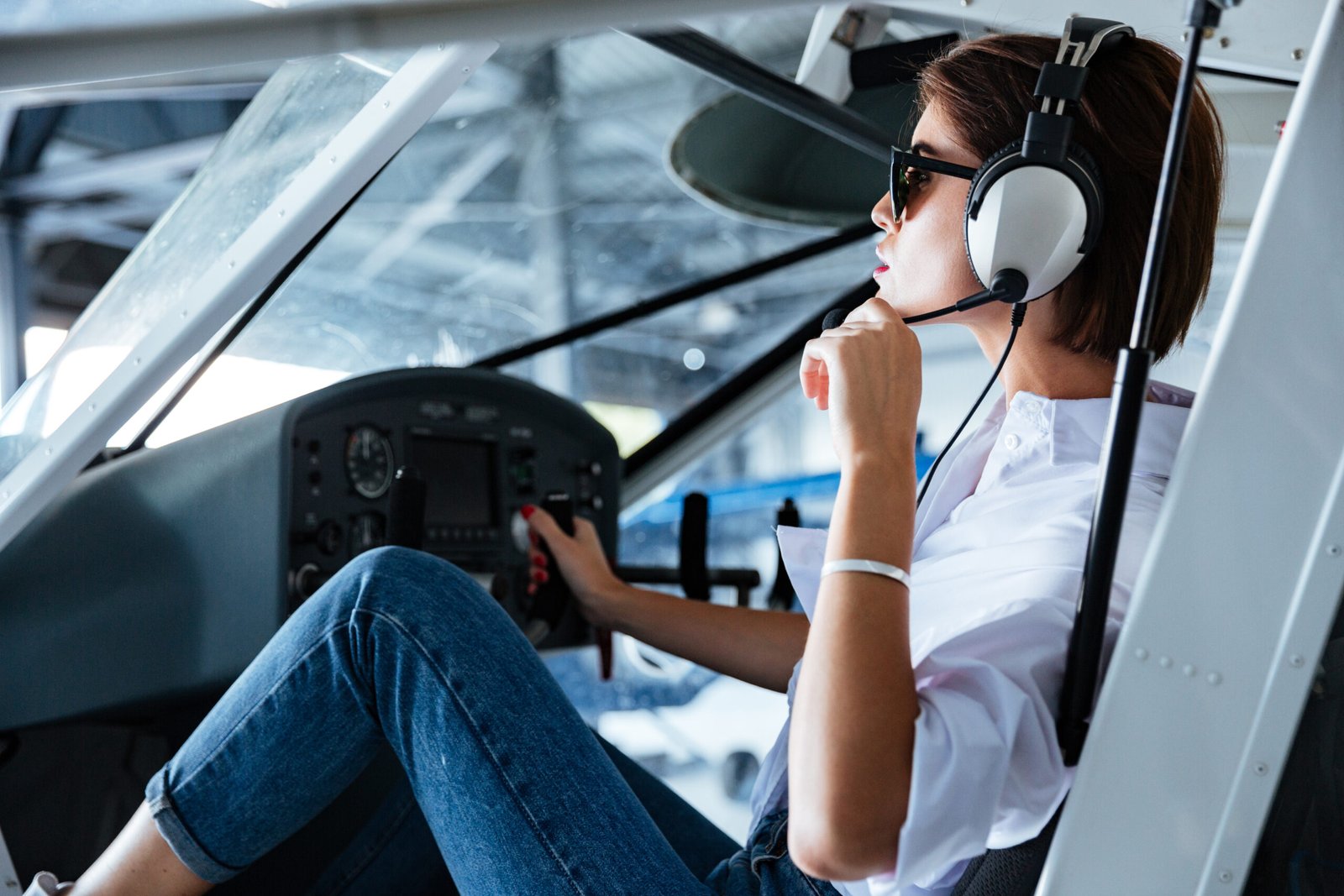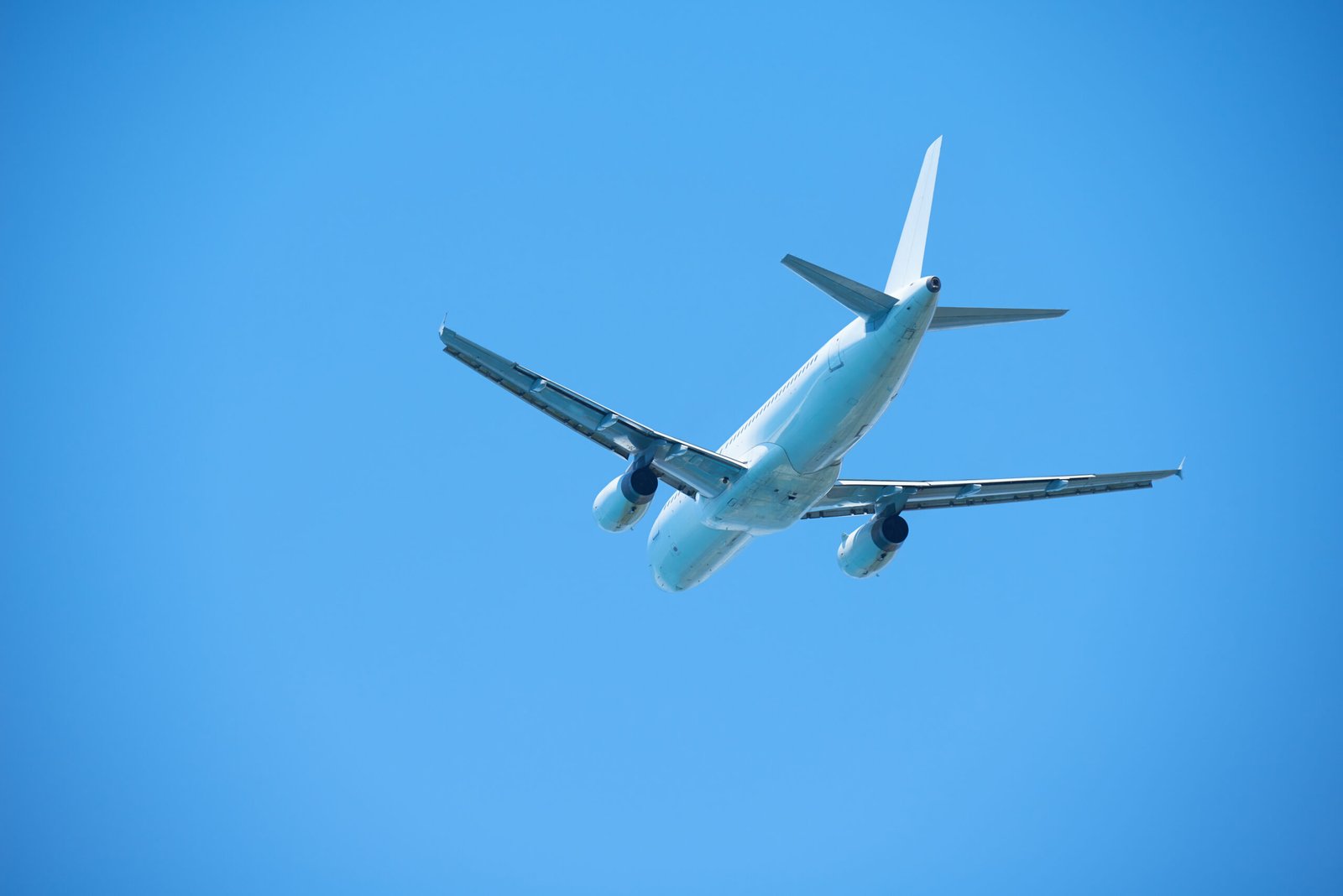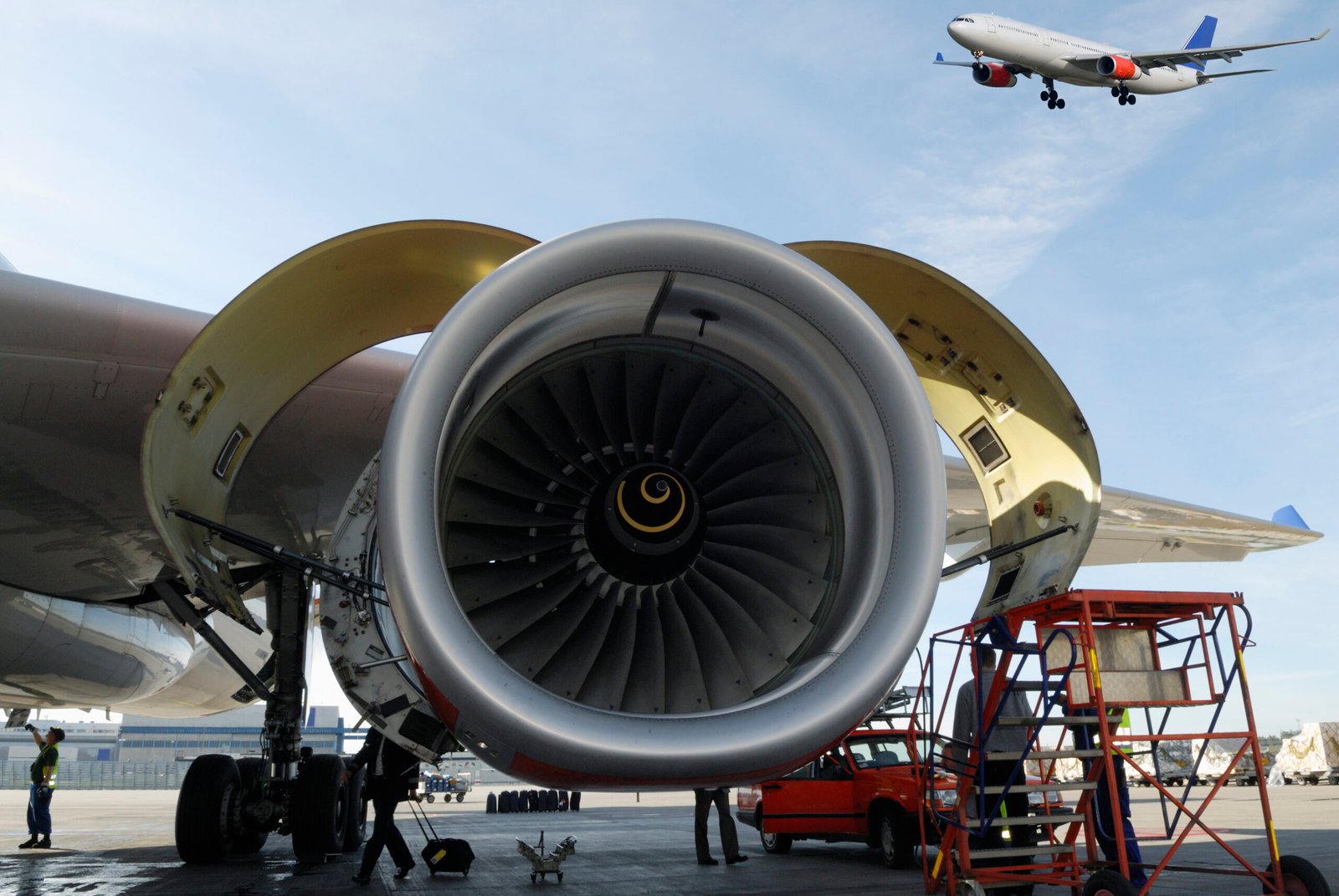Categories
Navigating Turbulence: How Aviation Adapts to Global Challenges
In a world where uncertainty and change are constants, the aviation industry continues to demonstrate remarkable resilience and adaptability. From evolving technological landscapes to shifting regulatory frameworks, the sector faces numerous challenges head-on. Central to this evolution is education, which plays a pivotal role in preparing the next generation of aviation professionals.
*Aviation Schools: Types of Courses**
Education in aviation is as diverse as the field itself. Various schools offer specialized programs that cater to different interests and career paths. Here’s a breakdown of some common types of courses available:

1. **Pilot Training Programs**: These are perhaps the most well-known offerings, encompassing private pilot licenses (PPL), commercial pilot licenses (CPL), and airline transport pilot licenses (ATPL). Students learn not just how to fly, but also about navigation, meteorology, and aircraft systems.
2. **Aircraft Maintenance Engineering**: For those inclined towards technical expertise, these courses focus on maintaining and repairing aircraft systems. They cover everything from jet engines to airframe structures.
3. **Air Traffic Control Training**: Aspiring air traffic controllers undergo rigorous training that includes simulations and real-time decision-making exercises to ensure safe skies.
4. **Aviation Management Programs**: These courses prepare students for administrative roles within airports or airlines, focusing on operations management, finance, marketing, and human resources specific to aviation.
5. **Unmanned Aerial Systems (UAS)**: With the rise of drones in commercial applications—from delivery services to agricultural monitoring—these programs teach students how to operate and manage UAS effectively.
Each type of course equips individuals with unique skills tailored for various sectors within aviation.
*Aviation Blogs, Websites & Social Media Sites**
Staying informed about industry trends is crucial for aviation enthusiasts and professionals alike. Here’s a list of noteworthy blogs, websites, and social media platforms dedicated to aviation:
**Airliners.net**: An extensive online community showcasing photographs and discussions surrounding various aircraft.
**The Points Guy**: This blog covers travel tips, loyalty programs, and airline reviews—perfect for frequent flyers seeking insight.
**Flying Magazine**: A treasure trove for pilots featuring articles on flying techniques, safety tips, gear reviews, and more.
**FlightAware.com**: Offers real-time flight tracking data along with insights into airport operations.
**YouTube Channels like Mentour Pilot & Captain Joe**: These channels provide engaging video content ranging from flight tutorials to behind-the-scenes glimpses at airline operations.
Social media platforms such as Instagram or Twitter also host vibrant communities showcasing stunning aerial photography or sharing personal flying experiences under hashtags like #AvGeek or #PilotLife.
*FAA Flight Schools & Simulators**
The Federal Aviation Administration (FAA) plays an integral role in regulating flight schools across the United States. FAA-approved flight schools maintain rigorous standards ensuring quality education in piloting techniques as well as compliance with safety regulations.
Many schools now incorporate advanced simulators into their curriculum—enabling students to practice flying in highly realistic environments without the risks associated with actual flights. These simulators range from basic setups mirroring small aircraft cockpits all the way up to full-motion simulators simulating large commercial jets.
As global challenges continue to shape industries worldwide—from climate change initiatives prompting greener technologies in aviation vehicles to navigating post-pandemic recovery—the educational backbone provided by diverse aviation courses ensures that professionals are ready for whatever turbulence may lie ahead.
In conclusion, through innovative training programs and robust online resources combined with FAA oversight on flight education standards—even amidst adversity—the world of aviation remains steadfastly airborne!
The Future of Flight: Innovations Shaping Aviation in the 21st Century
As we soar into the 21st century, aviation continues to evolve at an unprecedented pace. From cutting-edge technology to innovative training methods, the industry is on the brink of a transformation that promises to redefine flight as we know it. This post will explore key aspects shaping the future of aviation, including various educational pathways, valuable online resources, and advancements in flight training.
*Aviation Schools by Types of Courses**
Education plays a pivotal role in preparing the next generation of aviators. There are several types of aviation schools catering to diverse career paths within this dynamic field.
1. **Pilot Training Schools**: These institutions specialize in training aspiring pilots through programs that include Private Pilot License (PPL), Commercial Pilot License (CPL), and even Airline Transport Pilot (ATP) certification. Students engage in both ground school and hands-on flying experience.

2. **Aviation Maintenance Schools**: For those interested in aircraft maintenance and repair, these schools offer courses leading to Airframe and Powerplant (A&P) certification. Students learn vital skills such as troubleshooting mechanical issues and performing routine inspections.
3. **Air Traffic Control (ATC) Programs**: With air traffic becoming increasingly complex, ATC programs train individuals to manage airspace efficiently. Coursework includes communication protocols, radar operation, and emergency procedures.
4. **Aerospace Engineering Colleges**: These universities provide a deeper understanding of aircraft design and technology development. Courses often cover aerodynamics, avionics systems, and materials science.
5. **Flight Operations Management Degrees**: Focusing on the business side of aviation, these programs prepare students for roles in airline management or airport operations through classes on logistics, safety regulations, and financial management.
*Lists of Aviation Blogs, Websites, Social Media Sites**
In addition to formal education, staying informed about industry trends is essential for anyone passionate about aviation. A plethora of blogs and websites serve as excellent resources:
**AirlineReporter.com:** Known for its engaging articles on airline experiences.
**FlyingMagazine.com:** Offers insightful content covering everything from pilot tips to equipment reviews.
**AvWeb.com:** A well-rounded site featuring news updates and analysis pertinent to all things aviation.
**Jetwhine.com:** Focuses on insights from experienced pilots and industry professionals.
Social media platforms are also buzzing with aviation enthusiasts sharing their adventures:
On Instagram, follow accounts such as @aviationdaily for stunning aerial photography.
Twitter hosts lively discussions with handles like @avgeekery providing real-time updates.
Facebook groups like “Pilot’s Lounge” foster community among budding aviators by facilitating networking opportunities.
*FAA Flight Schools/Airplane Schools/Simulators**
The Federal Aviation Administration (FAA) ensures high standards for flight education in the United States through its network of recognized flight schools. Enrolling in an FAA-certified flight school guarantees access to professional instructors who adhere strictly to regulatory guidelines.

Additionally, many schools incorporate advanced flight simulators into their curriculum—an invaluable tool allowing students to practice navigation skills without leaving the ground! These simulators replicate real-world scenarios that pilots may encounter while flying commercially or privately.
In conclusion, as innovations continue shaping aviation from educational methodologies to technological advancements in training tools like simulators, it’s an exhilarating time for those entering this field. The blend of traditional knowledge with modern techniques ensures that future pilots will not only be equipped but also empowered to navigate the skies safely for years ahead!
Soaring High: The Evolution of Aviation Technology Through the Decades
Aviation has come a long way since the Wright brothers took to the skies in 1903. Today, we find ourselves in an era where technology not only enhances flight safety and efficiency but also revolutionizes how we learn about aviation. As we explore the evolution of aviation technology through the decades, it’s essential to look at some of the educational pathways available, valuable online resources, and FAA-certified training options that have shaped aspiring aviators.

### Aviation Schools by Types of Courses
The landscape of aviation education is diverse, catering to various interests and career paths within the industry. From traditional brick-and-mortar institutions to innovative online programs, aspiring pilots and aviation enthusiasts have a plethora of choices:
1. **Pilot Training Programs**: These courses are designed for those eager to take to the skies as private or commercial pilots. They include ground school instruction combined with hands-on flight training.
2. **Aviation Management**: For individuals interested in the business side of aviation, programs focus on airport operations, airline management, and air traffic control systems.
3. **Aircraft Maintenance**: Technical schools offer specialized training for those who wish to work on aircraft systems and structures, emphasizing safety protocols and regulatory compliance.
4. **Avionics Technology**: With advancements in electronic instrumentation in aircraft, avionics programs teach students about navigation systems, communication tools, and troubleshooting techniques.
5. **Unmanned Aerial Systems (UAS)**: As drones gain popularity across various sectors—from agriculture to defense—courses focusing on UAS technology equip students with skills for this burgeoning field.
### Lists of Aviation Blogs, Websites & Social Media Sites
In today’s digital age, staying updated with industry trends is easier than ever thanks to numerous blogs and websites dedicated to aviation. Here’s a curated list worth checking out:
**Airline Reporter**: This blog offers news from behind-the-scenes at airlines along with reviews.
**Flying Magazine**: An excellent resource filled with articles covering tips for pilots and features on new technology.
**The Points Guy (TPG)**: Though primarily focused on travel points and rewards; TPG often includes valuable insights into airline performance.
**AOPA (Aircraft Owners and Pilots Association)**: Provides resources for both novice pilots and seasoned professionals.
On social media platforms like Twitter or Instagram, following accounts such as @JetBlue or @Boeing can provide real-time updates directly from industry leaders.
### FAA Flight Schools/Airplane Schools/Simulators
When it comes to obtaining practical flight experience, FAA-certified schools are paramount. These institutions adhere strictly to regulations ensuring high standards of training:
1. **Part 61 Schools**: Flexible programs allow students to progress at their own pace while working towards their pilot license.
2. **Part 141 Schools**: Structured curricula provide a more regimented approach that may suit those looking for fast-tracked learning experiences.
3. **Flight Simulators**: Advanced simulators mimic real flying conditions without leaving solid ground—these invaluable tools help trainees practice maneuvers safely before entering actual cockpits.
From foundational pilot training courses at local schools to advanced technical studies online or through immersive simulations—aviation education continues evolving alongside technological advancements in aircraft design and operation.
As you reflect on your journey into this fascinating realm where innovation meets tradition—remember that every great flight begins with well-crafted knowledge! Whether you’re planning your first solo flight or just curious about aviation’s rich history—soar high into your dreams!
The Future of Flight: Innovations Transforming the Aviation Industry
As we soar into a new era of aviation, the landscape is evolving rapidly, driven by groundbreaking innovations and advancements. The future of flight is not only about sleek aircraft and high speeds; it’s also about training the next generation of aviators, sharing knowledge through various platforms, and harnessing technology to enhance safety and efficiency. Let’s delve into the different facets transforming this dynamic industry.
### Aviation Schools: A Spectrum of Courses
To navigate the skies effectively, aspiring pilots need comprehensive education tailored to their goals. Aviation schools offer a multitude of courses that cater to diverse interests and career paths.
1. **Private Pilot Training**: This foundational course introduces students to essential flying skills. It prepares them for private pilot certification, allowing them to fly solo or with passengers under specific regulations.
2. **Commercial Pilot Programs**: Once students obtain their private license, many opt for commercial training to gain professional piloting credentials. These programs provide advanced instruction on navigation, flight maneuvers, and operational procedures.
3. **Air Traffic Control (ATC) Training**: Not all aviation careers involve flying! ATC courses prepare individuals to manage air traffic safely and efficiently using cutting-edge technology.
4. **Aviation Management**: For those interested in the business side of aviation, management programs focus on airport operations, airline management, logistics, and regulatory compliance.
5. **Maintenance Engineering**: Recognizing the importance of aircraft upkeep, these technical courses equip students with skills needed for aircraft repair and maintenance—ensuring safety in every flight.
### A Wealth of Information: Aviation Blogs and Websites
In today’s digital age, staying informed is easier than ever thanks to a plethora of blogs, websites, and social media channels dedicated to aviation enthusiasts:
**Airline Reporter**: This blog covers industry news with a unique perspective on travel experiences.
**Flight Global**: An authoritative source for aviation news that keeps readers updated on global trends.
**The Points Guy (TPG)**: Focused on travel rewards strategies but rich in insights relevant to frequent flyers.
**AvGeekery**: A community-driven site where avid aviation fans share stories about their love for planes.
**YouTube Channels like Mentour Pilot**: Offering engaging video content that breaks down complex aviation concepts in an accessible way.
Social media platforms such as Instagram have taken flight too! Accounts like @aviationdaily showcase stunning aerial photography while Twitter handles like @FlightAware provide real-time tracking updates—keeping fans connected in real time.
### FAA Flight Schools & Simulators
For practical training grounded in safety standards, FAA-approved flight schools are vital stepping stones for aspiring pilots. These institutions adhere strictly to regulations set forth by the Federal Aviation Administration (FAA), ensuring quality education throughout various stages of pilot development.
Additionally, simulators have revolutionized pilot training over recent years. Advanced simulation technology allows students to experience realistic flying scenarios without ever leaving the ground! These systems replicate actual cockpit environments enabling learners to practice emergency procedures or hone specific maneuvers safely before taking off in real aircraft.
Simulators not only reduce costs associated with traditional flight hours but also permit learners endless opportunities for practice—an invaluable resource as they prepare for licensing exams or further certifications.
### Conclusion
The future of aviation gleams bright with innovation at its helm—from diverse educational pathways nurturing talent across various sectors within the industry to technological advancements redefining how we train pilots and share information. As we embrace these changes together as enthusiasts or professionals alike—one thing remains certain; our passion for flight will continue soaring toward new horizons!

Behind the Cockpit: A Day in the Life of an Airline Pilot
Ever wondered what it’s like to soar through the skies, commanding a massive airplane and ensuring hundreds of passengers arrive at their destinations safely? Being an airline pilot is not just a job; it’s a passion that requires extensive training, dedication, and skill. Let’s take you behind the scenes and explore what it takes to become a pilot, including aviation schools, useful resources, and the indispensable role of FAA-approved training programs.
*Aviation Schools: Navigating Your Path**
The journey to becoming an airline pilot often begins with formal education. Aviation schools offer various types of courses tailored for aspiring pilots. Generally, these can be categorized into:
1. **Degree Programs:** Many universities provide bachelor’s degrees in aviation science or aeronautical engineering. These programs encompass flight training along with essential coursework in subjects like meteorology and navigation.
2. **Certificate Programs:** For those looking for a quicker route into the cockpit, certificate programs focus specifically on the required flight hours and practical skills needed for obtaining private or commercial pilot licenses.
3. **Accelerated Flight Schools:** Ideal for individuals eager to fast-track their careers, these schools offer intensive flight training designed to equip students with everything they need within months.
4. **Online Courses:** Some institutions have begun offering online modules covering theoretical aspects of aviation—perfect for those balancing work or other commitments alongside their studies.
Choosing the right path depends on personal goals and timelines but rest assured that each type offers vital insights into aviation fundamentals.
*Resources You Can Rely On**
In today’s digital age, staying informed is crucial. Fortunately, numerous blogs and websites cater to both novice enthusiasts and seasoned professionals alike:
**AirlinePilotCentral.com**: A comprehensive resource that provides information about airlines’ hiring trends along with forums where pilots share experiences.
**Flying Magazine**: This publication delivers articles about flying techniques, safety tips, and reviews on new aircraft—all invaluable for any aspiring aviator.
**Piper Aviators Blog**: Dedicated to sharing tales from fellow pilots along with tips on maintaining planes—an excellent read for hands-on learners.
Social media platforms also serve as vibrant communities where pilots connect:
Follow hashtags like #PilotLife or #AviationDaily on Instagram to catch stunning aerial shots while learning from industry veterans.
Join Facebook groups such as “Aviation Enthusiasts” or “Future Pilots” where members share advice and opportunities related to flight training.
*FAA Flight Schools & Simulators**
The Federal Aviation Administration (FAA) plays a pivotal role in regulating flight training standards in America. FAA-approved flight schools are essential for anyone serious about becoming an airline pilot—they adhere strictly to safety regulations while providing high-quality instruction.
These schools often boast advanced simulators that replicate real flying conditions without leaving the ground! These state-of-the-art devices allow trainees to practice maneuvers they might encounter during actual flights—perfecting everything from emergency procedures to navigation techniques without putting anyone at risk.
As your day unfolds behind the cockpit—from pre-flight checks through cruising altitude—you’ll realize that every moment spent learning contributes toward achieving your dream of commanding an aircraft. Embrace this exciting journey filled with challenges but equally rewarding milestones; after all, adventure awaits just beyond the horizon!





